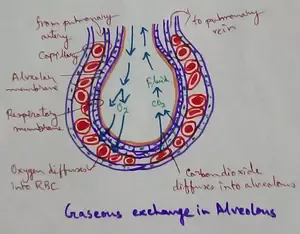Omission of the Antecedent
In English Grammar, an Antecedent is an expression (word, phrase, clause, sentence etc.) that gives its meaning to a Proform (pronoun, proverb, pro- adverb). A Proform, on the other hand, we can say, borrows its meaning from its Antecedent.
The Antecedent usually appears earlier in the same sentence or in a previous sentence. Each Pronoun should clearly refer to one specific Antecedent.
A missing Pronoun Antecedent occurs when the author implies it within the framework of the sentence without actually using it. A true Antecedent, on the other hand is clearly mentioned.
General Example: She arrived late because the traffic held her up. (The reason she arrived late is because the traffic held her up.)
Examples of Antecedent in case of Relative Pronoun
1. He arrived in the afternoon when nobody was at home.(Prepositional Phrase as Antecedent)
2. Susan lies all the time which everybody knows about. (Entire Clause as Antecedent)
· The stereotypical Proform is a Pronoun and the stereotypical Antecedent is the Noun/ Noun Phrase.
Examples of Omission of Antecedent:
1. This is (the place) where I found my watch
This is where I found my watch.
2. Winter is (the time) when the weather is at its best.
Winter in whenthe weather is at its best.
Examples 1 and 2 mean exactly the same when the antecedent is omitted because the sense remains intact and no meaning is lost in case of omission.
Consider the following examples, used in archaic English.
1. Whom the Gods love, die young.
(Those) whom the Gods love, die young
2. Who laughs last, laughs best.
(He/ she) who laughs last, laughs best.
3. Who works not shall not eat.
(He/ Sh)e who works not, shall not eat.
· Sometimes the Noun/ Pronoun which the Relative Pronoun refers to, known as the Antecedent may be omitted, resulting in nil/ negligible loss in meaning.
· Omission of the antecedent is frequent in restrictive clauses when the antecedent is easy to infer from the gender and number of the Relative Pronoun such as ‘things’ or ‘man’.
If the omitted antecedent would have been the object of the verb or preposition, the Relative Clause, in that case becomes that object.
Examples: (The missing antecedent is within brackets)
1. He persuaded whom he could.
He persuaded (those) whom he could (persuade).
2. I distrust whom I do not like.
I distrust (those) whom I do not like.
3. We do not like whom we distrust.
We do not like (those)whom we distrust.
4. Who strives to help others, helps himself thereby.
(He) who strives to help others, helps himself thereby.
5. Who lives honestly, lives nobly.
(He/ She) who lives honestly,lives nobly.
6. Who steals my purse, steals trash.
(He/She) who steals my purse, steals trash.
7. Who plants trees, loves others than himself.
(He)who plants trees, loves others than himself.
In all the above sentences, the antecedent is omitted. The Personal Pronoun (he) might be used in each case.
8. This is what he wanted.
This is (the thing) that he wanted.
English Grammar and Composition
From Omission of the Antecedent to HOME PAGE
Recent Articles
-
Formed Elements of Blood | Erythrocytes | ESR |Leukocytes |Neutrophils
Jan 15, 26 01:25 AM
Formed elements formed elements are constitute about 45 % of blood afeias haematocrit value packed cell volume mostly of red blood corpuscles and are of 3 types- erythrocytes, leukocytes and blood pla… -
What Is Plasma? | Blood Plasma | Proteins | Nutrients | Cholesterol
Nov 07, 25 10:29 AM
Blood is a mobile fluid which is a connective tissue and is derived from the mesoderm like cell any other connective tissue. Colour of blood is reddish and that flows inside the blood vessels by means… -
Disorders of Respiratory System | Tuberculosis | Pleurisy | Emphysema
Oct 28, 25 11:39 PM
Tuberculosis is very common disease and is caused by a type of bacteria called Mycobacterium tuberculosis. This disease causes different trouble in the respiration and infection of several parts of th… -
Regulation of Respiration | Respiratory Centres | Inspiratory Area |
Oct 14, 25 12:13 AM
Respiratory Centre is the area that controls the rate of respiration and it is observed to be located in medulla oblongata and pons. Respiratory Centre has the following will dispersed components like… -
Explain Transport of Gases | External Respiration | Tissue Respiration
Oct 09, 25 11:35 PM
In humans gaseous exchange is completed in the following ways the steps are - External Respiration or Breathing - Breathing in false taking in of Oxygen and giving out of carbon dioxide in the body. M…





New! Comments
Have your say about what you just read! Leave me a comment in the box below.